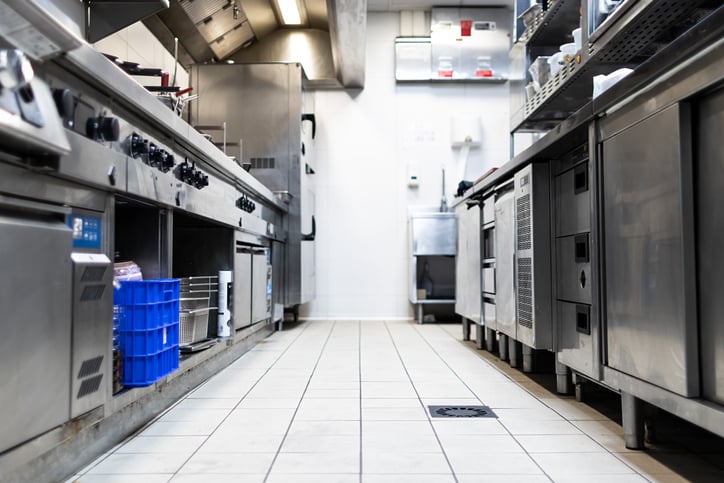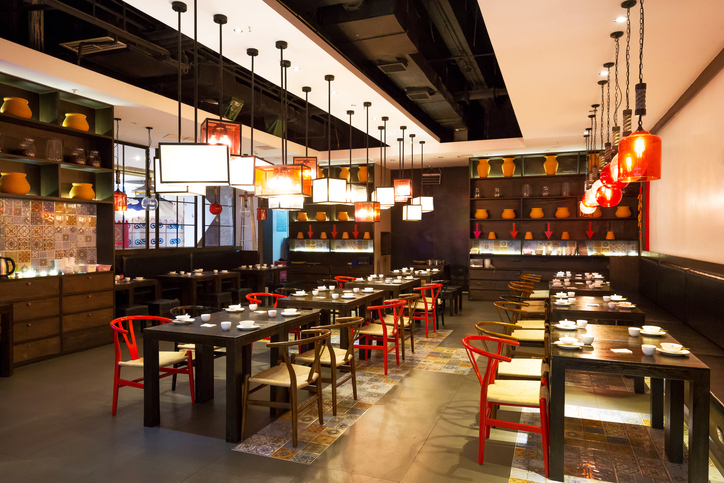Restaurant Maintenance: 5 Key Programs and Services

Dining establishments have special requirements to ensure they remain safe for customers and employees alike—and to stay in compliance with health codes and local regulations. Consequently, there are a variety of key commercial facilities maintenance services that restaurant owners and managers should implement to maintain safety and compliance. Here are five to consider.
Trust Chain Store Maintenance for
Reliable, Immediate Commercial Property Services
Preventive Maintenance for Restaurants: 5 Key Programs and Services
Grease trap program
Whatever goes down the drains in a restaurant—sugars, grease, oils and fats—ends up in a grease trap and those substances build up over time. The grease traps must be emptied to keep the collected sludge from reentering the water supply. City inspectors will periodically visit restaurants to confirm that the traps are being emptied and that the establishment is in compliance.
When you implement a restaurant facilities maintenance program for your grease traps, your services partner will thoroughly empty, clean and refresh the traps. They’ll also provide a fats, oils and grease (FOG) report, listing how much of each element they removed from the trap for your files, and a record in case you ever need to refer to it.
The frequency for grease trap cleaning will vary based on your locations’ volumes and how heavily the traps are being used. For some restaurants it may be as frequent as every 30 days, while just twice a year for others. Beyond being out of compliance, the hazards of not having a grease trap program will be evident, as grease will back up, overflow and create both a mess and a strong odor.
Fire extinguisher program
A fire extinguisher program is a critical aspect of preventive maintenance to help keep restaurants safe. Your provider should evaluate your property and fire extinguisher needs, inspect the manual components of your extinguishers and refill or recharge them as necessary annually to ensure you are up to code for your area. (It not only safeguards your establishment but is also a legal requirement.) Records of inspections should be maintained by placing a tag or label on the extinguisher or keeping electronic files.
Hood cleaning program
Grease buildup on stove hoods can be a major fire hazard for restaurants. As part of an effective hood cleaning program, your restaurant maintenance provider will offer comprehensive vent hood cleaning, from stovetop to rooftop that meets NFPA 96 standards. Hoods need to be inspected, cleaned and polished at least twice per year, with the date recorded.
Backflow program
Backflow testing and maintenance services keep a restaurant’s plumbing functioning at its best, effectively preventing untreated or contaminated water from being back-siphoned into clean water and ensuring that its water remains in compliance with health and safety standards. Your restaurant maintenance provider will work with you to establish a backflow testing schedule, collecting data with reactive testing requests to determine which locations are due for service to help avoid shutdowns.
Tankless water heater maintenance program
Tankless water heaters deliver hot water only on demand, heating it instantly without the storage tank that conventional water heaters require. Beyond instant hot water and a more compact footprint, tankless units can offer a variety of other benefits, including greater energy efficiency/lower costs, reducing your carbon footprint via lower greenhouse emissions and costing less to purchase and install.
But if you’re considering replacing your conventional water heater with a tankless unit, keep in mind that they may not be the right fit for every restaurant. If your establishment is on the larger side and/or uses a high volume of hot water, it may be better off with a conventional water heater that will be able to more effectively meet your demand.
If you do decide tankless is the way to go for your establishment, you’ll want to add a tankless water heater maintenance program to your restaurant maintenance checklist. Tankless units need to be flushed at least annually (and more frequently if you have hard water) to prevent and remove sediment buildup that can cause problems and shorten the life of your unit.
Bonus: Don’t Forget About the Exterior
The five tips above focus on the key interior facilities maintenance at your restaurant properties, but don’t forget about the exterior of your property. Restaurant owners and operators also need a preventative maintenance plan for their parking lots and drive-thrus to keep them safe and clean. Snow and ice removal is also integral to help prevent slip and fall accidents, as well as fender-benders in your parking lot.
Turn to Chain Store Maintenance for all of your restaurant preventive maintenance needs
As a restaurant owner, you already know how much work goes into safeguarding your establishment and staying up to code. By creating targeted maintenance programs like these in partnership with a trusted restaurant facilities maintenance services provider, you can shift some of that responsibility and record keeping to them and always know your business will be safe and in compliance.
If you’re looking for a restaurant maintenance provider, contact Chain Store Maintenance - an MCS company, at CSMsales@ChainStore.com to learn how we can partner with you to create and manage these critical maintenance programs so you can focus on your other business priorities.



